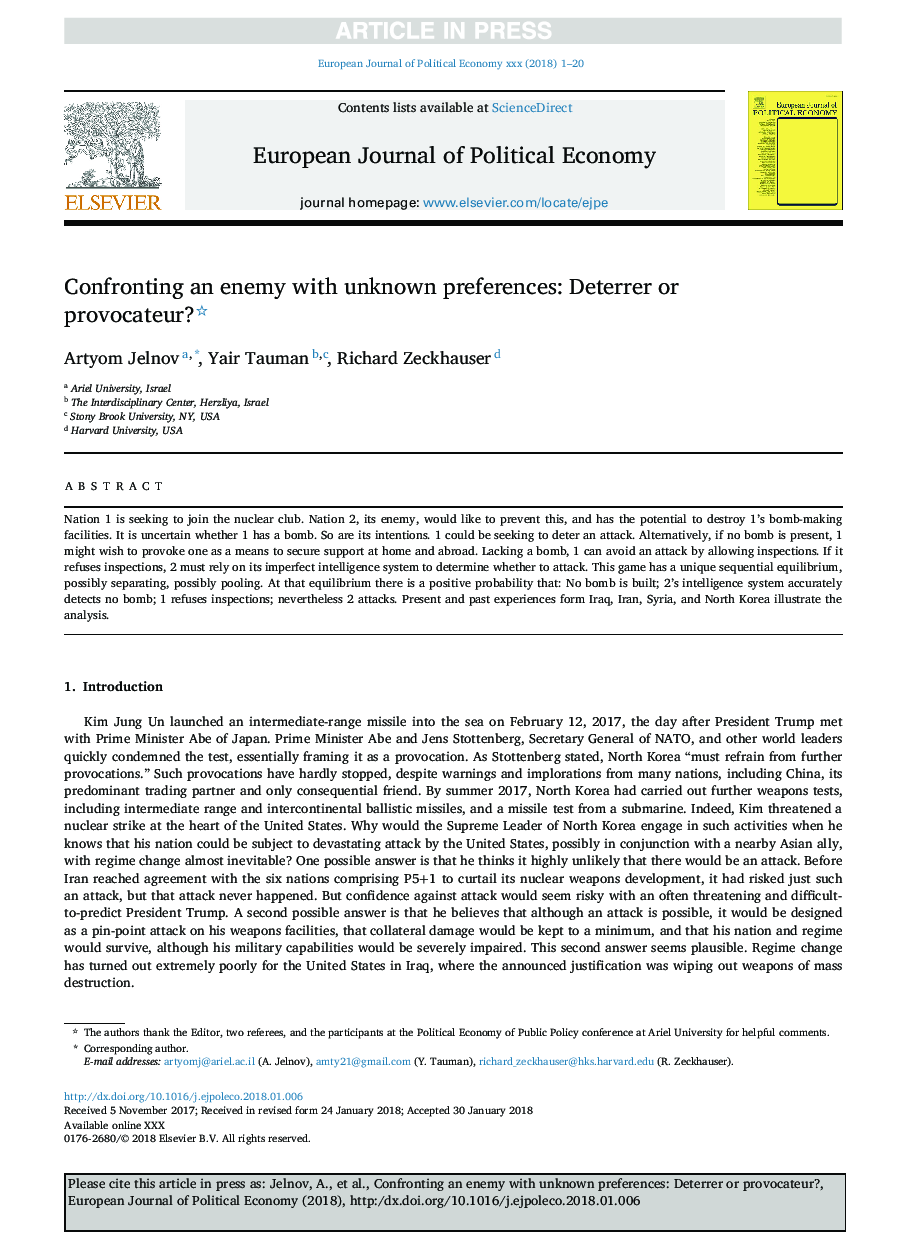| Article ID | Journal | Published Year | Pages | File Type |
|---|---|---|---|---|
| 11016158 | European Journal of Political Economy | 2018 | 20 Pages |
Abstract
Nation 1 is seeking to join the nuclear club. Nation 2, its enemy, would like to prevent this, and has the potential to destroy 1's bomb-making facilities. It is uncertain whether 1 has a bomb. So are its intentions. 1 could be seeking to deter an attack. Alternatively, if no bomb is present, 1 might wish to provoke one as a means to secure support at home and abroad. Lacking a bomb, 1 can avoid an attack by allowing inspections. If it refuses inspections, 2 must rely on its imperfect intelligence system to determine whether to attack. This game has a unique sequential equilibrium, possibly separating, possibly pooling. At that equilibrium there is a positive probability that: No bomb is built; 2's intelligence system accurately detects no bomb; 1 refuses inspections; nevertheless 2 attacks. Present and past experiences form Iraq, Iran, Syria, and North Korea illustrate the analysis.
Related Topics
Social Sciences and Humanities
Economics, Econometrics and Finance
Economics and Econometrics
Authors
Artyom Jelnov, Yair Tauman, Richard Zeckhauser,
